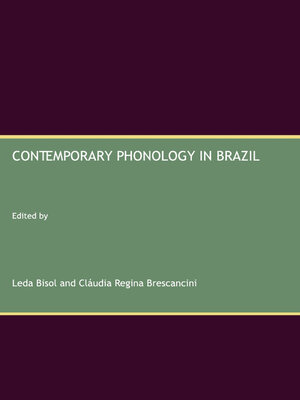
Sign up to save your library
With an OverDrive account, you can save your favorite libraries for at-a-glance information about availability. Find out more about OverDrive accounts.
Find this title in Libby, the library reading app by OverDrive.



Search for a digital library with this title
Title found at these libraries:
| Library Name | Distance |
|---|---|
| Loading... |
Contemporary Phonology in Brazil is a collection of phonological studies in Brazilian Portuguese and Indigenous Brazilian Languages which are developed in Prosodic Phonology, Historical Change, Segmental Phonology, First Language Acquisition and Indigenous Languages.
The Prosodic Phonology is present in the following works about Brazilian Portuguese: Accommodation of intonational patterns in short utterances: compression or truncation; The stress of non-verbs in the Multidimensional Metrical Plane and Secondary stress, vowel reduction and rhythmic implementation.
The Historical Change is the subject of Sandhi: a comparative study between Archaic and Brazilian Portuguese; Clitic prosodization in Brazilian Portuguese: analysis of documents from the nineteenth century and Faithfulness demotion in the historical phonology of Portuguese: a constraint-based account.
The Segmental Phonology is the base of The nominal metaphony of Brazilian Portuguese in the light of the Optimality Theory; Allomorphy in the Brazilian Portuguese verbal system and Variable aspects of Brazilian Portuguese phonology: laterals in coda position.
First Language Acquisition comprises two studies: Phonological acquisition and phonological theory: formilizing patterns considering features and segments and Optimal geometries in the acquisition of Portuguese
Indigenous Languages are discussed in Brazilian Indigenous Languages: a brief history and some hope for the future; The rhythm class hypothesis and Indigenous Languages and The development of creaky voice in Munduruku.







